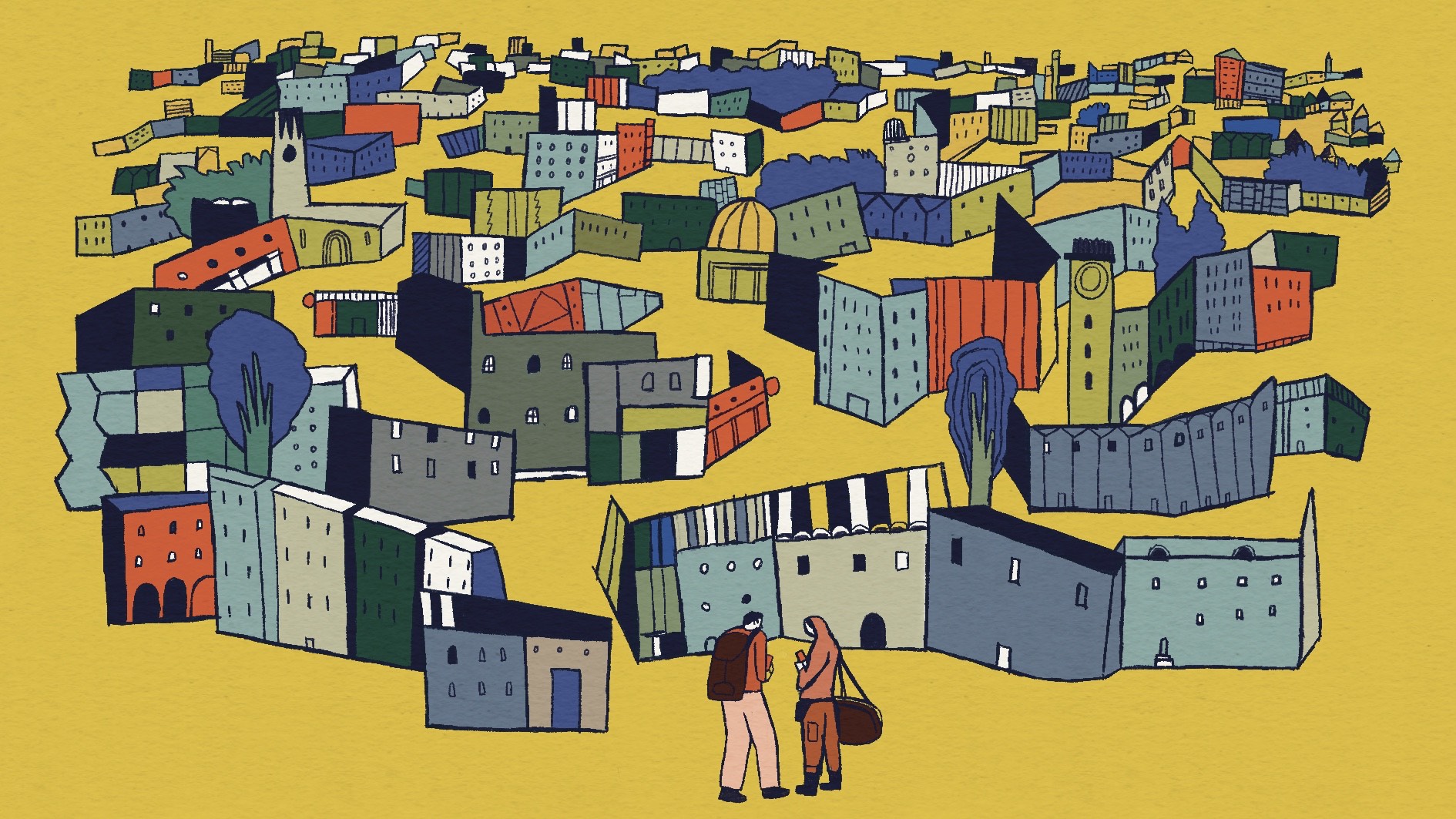
Ibrahim Rayintakath
Description
In a world grappling with a profound learning crisis, TheTeacher.AI emerges as a family of products using advanced cutting-edge technology and artificial intelligence to support educators worldwide, and particularly those in remote and under-resourced locations. It does so by equipping them with the tools, knowledge and resources they need, as a means to overcome the challenges they face in daily practice. Its current offerings include a responsive WhatsApp-integrated chatbot for immediate pedagogical support—currently operating in Sierra Leone— and an AI-powered lesson planning tool.
Context
The global education crisis presents an enormous challenge. According to one estimate, between 2015-2021 over 393 million children reached the age of 10 without gaining basic literary skills.
Teachers are the backbone of any education system, playing a critical role in facilitating learning. They also represent a large proportion of education budget expenditure – three quarters of the budget at the primary level in developing countries (World Bank, 2018). However, despite how important they are in improving foundational literacy and numeracy, they often lack sufficient support, both in terms of professional development and in classroom support, such as lesson planning and answering queries. This exacerbates the severity of the learning crisis.
The teaching profession faces multiple challenges. To achieve universal primary and secondary schooling, sub-Saharan Africa alone needs to recruit more than 15 million additional teachers (UNESCO, 2021). The current shortage of teachers worldwide, underscores the necessity for significant budgetary investments in education. Due to inadequate finance, the teaching profession also struggles to attract strong candidates (World Bank, 2018). Many teachers are recruited from within the same systems they are trying to improve and often struggle. Moreover, the teaching profession offers unattractive working conditions with limited opportunities for teacher professional development (TPD) and ongoing support. In addition, existing teachers are often overburdened from dealing with large classes and heavy workload (UNESCO, 2022).
Moreover, the teaching profession offers unattractive working conditions with limited opportunities for teacher professional development (TPD) and ongoing support. In addition, existing teachers are often overburdened from dealing with large classes and heavy workload (UNESCO, 2022).
Teacher Professional Development can play a crucial role in supporting teachers to improve their teaching quality although the availability of evidence on effective TPD is limited (Rose et. al., 2021), and when available, it shows mixed outcomes.
Research into the components of effective TPD (World Bank, 2021) shows that the nature and quality of TPD matters, and that training needs to be tailored to teacher needs and contexts, be practical, focused in scope, and ongoing. Other research has shown it needs to be considered in the context of other available education ingredients, such as teaching resources (Piper et. al., 2018). Conversely, TPD activities are often limited and sporadic. In the US, researchers categorised it as “episodic, myopic, and often meaningless” (Darling-Hammond, Wei, Andree, Richardson, and Orphanos, 2009).
Therefore, Teacher.AI seeks to bridge the gap in effective teacher support by utilising a piloted AI-powered WhatsApp chatbot that offers on-demand support and training through conversational interactions.
Technical details & Operations
The chatbot works like a digital helper for teachers, providing useful information and answering queries. When a teacher signs up, they are given a unique WhatsApp number for text-based interactions with the system.
The chatbot operates through OpenAI, WhatsApp and Twilio and uses two Large Language Models (LLMs). The first LLM acts as a monitor over the interaction. It examines the conversation and decides if an external knowledge source would be useful at this stage. If so, it extracts the main points or keywords. These keywords are compared with the team’s knowledge database of educational materials and the system identifies the most similar resources related to the teacher’s query. The second LLM, acting as the main conversational agent, continues the interaction with the teacher based on the conversation history. If the monitor has decided to return any resources, this material is incorporated into the response. All this happens instantly – teachers receive immediate assistance, no matter their geographical location.
TheTeacher.AI also uses a combination of Natural Language Processing and includes added safety measures to ensure content is appropriate. One of the risks with allowing access to LLM’s is their ability to generate text of practically any topic – including those which could be unrelated to education aims. The Teacher.AI takes this seriously and has spent a lot of time trying to ensure that the AI only responds to questions relating to continual professional development for teachers, clarifies when it is unsure of its answers, and prevents users from trying to “jail break” the AI and change how it behaves.
In summary, The Teacher.AI chatbot:
- Capitalises on the widespread use of WhatsApp, a platform that works with low-bandwidth connectivity, enabling it to reach teachers in remote locations.
- Is a low-cost solution to teacher training and ongoing on-demand support.
- Is tailored to the unique educational needs and contexts of each region as it integrates country-specific curriculums and teacher support guides.
- Addresses the need for consistent, high-quality teacher training as it is designed by teachers and pedagogical experts.
Deployment & Impact
Research suggests that educational technologies (Edtech) can be “successfully leveraged to overcome constraints operating” in low and middle income countries and can narrow inequalities (Hennessy et. al., 2022). In our efforts to make a positive impact, we developed TheTeacher.AI. We want all teachers, irrespective of their background and ability, to be able to access cutting-edge technology and ongoing support.
Teacher.AI partnered with EducAid – a local education charity with a strong presence in Port Loko district in Sierra Leone. This district currently has learning outcomes below the average of the country. Therefore, in partnership, TheTeacher.AI was introduced in two ways:
- In April 2023, as part of an MTHE (Ministry of Technical and Higher Education) training, EducAid helped Teacher.AI piggyback the training delivered with 1,000 teachers in attendance at the Magburaka Boys School in Tonkolili and deliver a short training on TheTeacher.Ai.
Teacher.AI has seen that more than 10% of the 116 teachers who used the chatbot on their phones during that session have continued to use it regularly since then.
- TheTeacher.AI is also being integrated into EducAid’s work with teachers in Western Area, Kambia and Port Loko. In May 2023, EducaAid ran a specialised workshop with 63 headteachers as part of their Sierra Leone Education Innovation Challenge (SLEIC) programme. The headteachers, trained as champions, are vital for promoting tool adoption within their schools, especially in regions that require enhanced skill development support. The headteachers’ training session showed high engagement levels, with users asking an average of 7.2 questions each. This engagement has also continued post-training.
Since the deployment, TheTeacher.AI’s chatbot userbase has added 528 teachers and 63 headteachers. Key Informant Interviews (KIIs) conducted 2 months after deployment in 3 schools have revealed that teachers in Sierra Leone have continued to utilise TheTeacher.AI after the training to refine their instructional methodologies and compare the tool’s advice against their lesson plans.
The continued use of TheTeacher.AI outside of the training signals demonstrates Teacher.AI’s practicality and adaptability, indicating the perceived utility and prompting further exploration beyond the training context. While further research is needed and is anticipated, on a larger scale, TheTeacher.AI chatbot has the potential to make a significant social impact.





